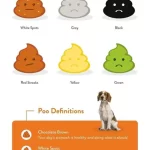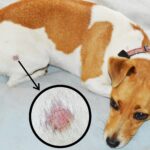Can Dog Have Mushrooms
Can Dogs Have Mushrooms? Everything You Need to Know
Dogs are known for being a man’s best friend. They bring us joy, comfort, and unconditional love. As pet owners, we want to ensure that our furry friends are healthy and happy at all times. That’s why one of the most common questions pet owners ask is, “can dogs have mushrooms?” The answer is not as straightforward as you might think.
Mushrooms are a type of fungus that grows in various shapes, sizes, and colors. While some mushrooms are edible and nutritious for humans, others can be toxic and even lethal. But what about dogs? Can they eat mushrooms without any harm?
The short answer is no; dogs should not eat mushrooms. However, like with most things in life, it’s not always black and white. In this article, we’ll explore everything you need to know about dogs and mushrooms.
Why Are Mushrooms Toxic to Dogs?
Mushrooms contain substances called mycotoxins, which are toxic compounds produced by fungi. Not all mushrooms produce mycotoxins, but it’s hard to tell which ones are safe based on their appearance alone.
Some common mycotoxins found in mushrooms include amatoxin, gyromitrin, and ibotenic acid. These toxins can cause severe liver damage, seizures, hallucinations, and even death if ingested by dogs.
Symptoms of Mushroom Poisoning in Dogs
If your dog eats a mushroom containing mycotoxins, they may start showing symptoms within hours or days after ingestion. Some common signs of mushroom poisoning in dogs include:
– Vomiting
– Diarrhea
– Abdominal pain
– Lethargy
– Loss of appetite
– Jaundice (yellowing of the skin and eyes)
– Seizures
– Coma
If you suspect your dog has eaten a mushroom, it’s essential to seek veterinary care immediately. Mushroom poisoning can be fatal if left untreated.
Types of Mushrooms Toxic to Dogs
It’s hard to tell which mushrooms are safe for dogs to eat, so it’s best to avoid feeding them any type of mushroom. However, some species of mushrooms are more toxic than others and should be avoided at all costs.
Some common types of mushrooms that are toxic to dogs include:
– Amanita phalloides (death cap)
– Amanita muscaria (fly agaric)
– Gyromitra esculenta (false morel)
– Conocybe filaris (deadly galerina)
These mushrooms contain high levels of mycotoxins and can cause severe liver damage and other health problems in dogs.
What Should You Do If Your Dog Eats a Mushroom?
If you suspect your dog has eaten a mushroom, don’t panic. The first thing you should do is try to identify the type of mushroom they ate. If possible, take a picture of the mushroom or bring a sample with you to the vet.
Next, call your veterinarian or animal poison control center immediately. They will ask you about the symptoms your dog is experiencing and give you instructions on what to do next.
In most cases, your vet will induce vomiting in your dog to prevent further absorption of toxins. They may also administer activated charcoal to absorb any remaining toxins in your dog’s stomach.
In severe cases, your dog may need hospitalization and supportive care, such as intravenous fluids and medications to support liver function.
Preventing Mushroom Poisoning in Dogs
The best way to prevent mushroom poisoning in dogs is to keep them away from mushrooms altogether. When walking your dog outdoors, keep them on a leash and supervise them closely.
If you have mushrooms growing in your yard or garden, remove them immediately. Be sure to wear gloves when handling mushrooms since some types can be toxic to humans as well.
Conclusion
In conclusion, can dogs have mushrooms? The answer is no. Mushrooms are toxic to dogs and can cause severe health problems if ingested. It’s best to keep your dog away from any type of mushroom, and if you suspect they ate one, seek veterinary care immediately.
As pet owners, we want to provide our furry friends with the best possible care. By being aware of the potential dangers of mushrooms and taking steps to prevent mushroom poisoning, we can ensure that our dogs stay happy and healthy for years to come.
So next time you’re out walking your dog and see a mushroom, remember: it’s not worth the risk. Keep your dog safe and stick to playing fetch instead!



